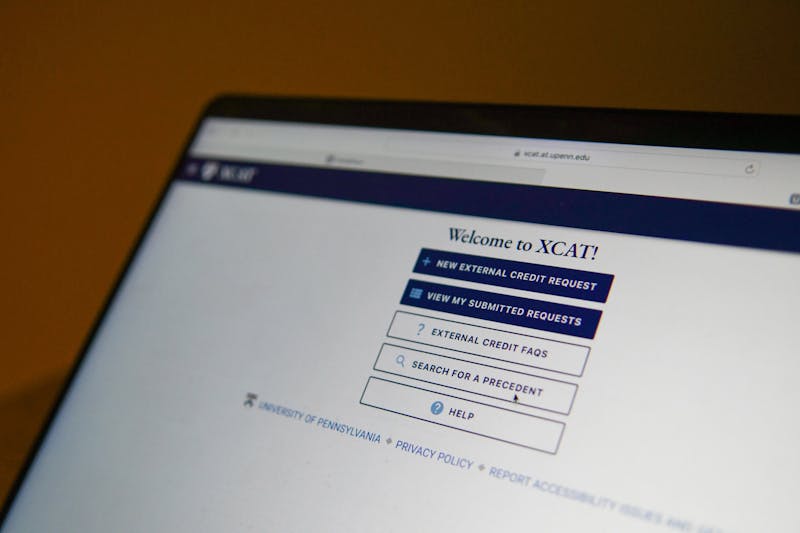
The University of Pennsylvania prides itself on being a leading institution of higher education, committed to fostering a supportive and inclusive environment for its faculty. Yet this support almost always skews towards tenure-track faculty. One of the most glaring discrepancies for tenure-track versus non-tenure-track faculty involves the exclusion of NTT faculty from some parental leave benefits. This blatant discrepancy undermines the personal and professional wellbeing of these essential educators and hampers the University’s reputation as a progressive and equitable workplace.
It’s time for Penn to provide transparent and consistent parental leave for NTT faculty.
NTT faculty are the backbone of undergraduate education at Penn, representing 62% of our instructors. These faculty members teach courses, mentor students, and conduct research that is crucial to the core mission of our university. Without them, the University couldn’t function. Despite these pivotal contributions, too often NTT faculty are treated as second-class citizens, with fewer benefits compared to their tenured counterparts. In addition to lower pay, less job security, and fewer protections around academic freedom, NTT faculty are subjected to vague, subjectively enforced parental leave policies.
The lack of employer support for caregiving is increasingly driving people out of higher education. Most often, it’s women and gender-nonconforming people who are faced with choosing caregiving over their careers. Tenure-track faculty at Penn receive up to a full year of parental leave from teaching. For NTT faculty, leave policies vary wildly. Some receive teaching relief while others do not. The lack of consistent, transparent policies creates immense financial and emotional strain. It forces them to make impossible choices between their careers and their families. It reduces their ability to plan courses and conduct research. And it sends a clear message that their contributions to the university are less valued than those of tenured faculty.
Currently, workload relief for NTT faculty is determined on a case-by-case basis, resulting in inequity and placing undue burden on individual faculty and department chairs. In contrast, peer institutions have standardized policies guaranteeing at least one semester of workload relief for all new parents (and often two for birth parents). Family-friendly policies improve employee wellbeing and morale, reduce turnover, and help recruit top talent. By committing to the wellbeing of its NTT faculty, Penn will enhance its reputation as an employer of choice and create a more stable and productive environment for multiple stakeholders, including students, staff, administrators, and faculty.
The School of Arts and Sciences offers a model policy that clearly defines parental leave for both standing and non-standing faculty. The SAS policy includes leave and teaching relief for the birth parent and the spouse or partner of the birth parent. It also specifies leave and teaching relief for adoptive parents and extends the tenure probationary period (standing faculty) or appointment term (non-standing faculty). In contrast to many other policies around the University, it also describes what happens in the case of a summer birth and explicitly lists the type of NTT faculty eligible for these policies. The SAS policy promotes equity and inclusion by offering equal treatment for teaching relief across a diversity of faculty roles. The extension of workload relief to NTT faculty without teaching duties (e.g., research faculty) would make the policy even more comprehensive.
We urge Penn to expand the SAS policy across the entire University and provide parental leave benefits to all full-time faculty.
So far, we have focused on parental leave policies, but it’s important to note that there are many kinds of caregiving responsibilities that require support from employers. Families can require many types of care, from school-age kids with chronic illnesses to aging parents or an injured spouse. Ensuring fair and consistent policies around parental leave is an important step, but it’s also part of a much larger conversation about supporting workers who provide many different kinds of caregiving.
Penn administration regularly holds up “in principal and in practice” as a framework for institutional priorities and decision making. It’s time for Penn to put its principles of faculty support and equity into practice for NTT faculty. By committing to equitable and transparent parental leave policies for all faculty members, the University will show it truly values equity, inclusion, and the work-life balance. We encourage you to show your support by signing our petition here.
JESSA LINGEL is a professor of Communication, an affiliate faculty member in the Department of Cinema and Media Studies, and the director of the Gender, Sexuality, and Women’s Studies Program. Her email is lingel@upenn.edu.
DUSTYN ROBERTS is a practice professor of Mechanical Engineering and Applied Mechanics. Her email is dustyn@seas.upenn.edu.
The Daily Pennsylvanian is an independent, student-run newspaper. Please consider making a donation to support the coverage that shapes the University. Your generosity ensures a future of strong journalism at Penn.
Donate












